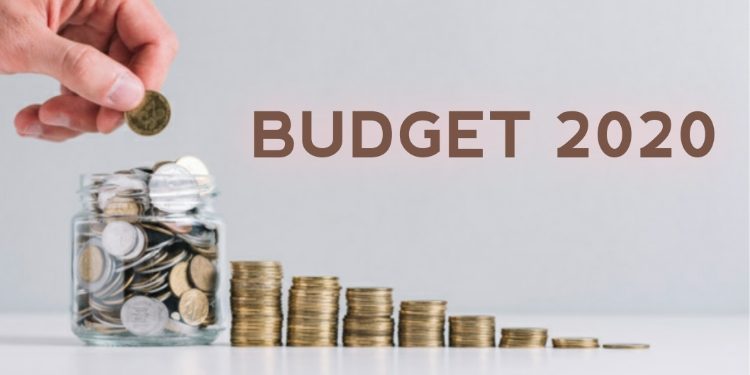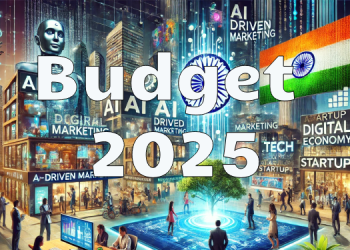Stage is set for the presentation of the Union Budget 2020. Expectations are high as the industry looks for measures to boost the economy as the country is going thru testing times. There has been a slowdown in employment rates and in some key sectors.
The Finance Minister Ms. Nirmala Sitharaman, has a tough challenge in presenting this year’s budget.
Here are some suggestions and expectations from some of the leading Brands
Ramki Gaddipati, CTO and Co-founder, Zeta
Aspiring to become a 5 trillion economy by 2025 is very ambitious and for that to happen we need to bring growth back on track. I would like to see wide ranging reforms across all areas instead of focusing only on 1-2 sectors only. The Budget should further evaluate ease of doing business and take a pragmatic view on issues like angel tax, which actually may be hampering growth. I also think that digital infrastructure needs another push, especially in the areas of banking and payments so that it can be made more inclusive for tier 2 and tier 3 cities. Lastly, to increase consumer spending, I think the government could also reduce the personal income tax slabs so that people have more cash in hand.
Sudhanshu Agarwal, Founder & Director, Citykart
The retail industry and consumers are eagerly waiting for the announcement of Union Budget 2020 with an expectation from the Government to revive consumption and spur the industrial growth. This budget we are looking forward to the government’s decision to streamline the retail process with simplification of the GST slab and structured implementation of new mechanism. We are optimistic that new policy incentives will provide further impetus to the retail sector in 2020. Furthermore, we are also hoping the government to invest in infrastructure policies that will help retailers to flourish in tier-3 & tier-4 cities in full bloom.

Indroneel Dutt, CFO, Cleartrip
We are also hopeful that the government will take cognizance and resolve challenges for the aviation industry which has already seen a tough year in 2019. For one, out of all the stakeholders in the aviation ecosystem, airlines operate with the most paper-thin margins. This, coupled with TCS (Tax collection at source), ends up hampering the working capital of airlines, giving rise to numerous operational difficulties. These obstacles are not only affecting the stakeholders and service providers but the consumers as well. We are optimistic that the government will continue to be open-minded and maintain the impetus of its past initiatives while bringing necessary reformations to further enable the travel sector. –

Sunil Gupta, MD & CEO, Avis India
I believe that the government should build on its recent push towards sustainability by prioritising the growth of the EV ecosystem. This can be done by promoting the creation of a strong and well-connected charging infrastructure on a pan-India level, promoting the setting up of EV battery capacity in the country and incentivizing the adoption of EVs, especially for public transport buses, fleet operator cars and 2 and 3 wheelers. The road connectivity must also be improved between major urban centers and tier-2/3 regions to bolster the growth of the travel and tourism sector.

Varun Chadha, CEO, Tirun
The government has recognized the potential of cruising as an economic multiplier and is catching up with the world in terms of policies and infrastructure. Cruise Lines are now looking at the government to create a relatable tax regime, which is at par with the rest of the world.

KE Ranganathan, MD, Roca Bathroom Products Private Limited
The union budget 2020 and eager to see the much-needed boost and growth impetus to our economy towards the 1 Trillion $ mark. We are expecting a “growth-oriented and people-friendly” budget to stimulate consumption and demand in the ecosystem. Focus on rural development and sectors that are labour intensive such as construction, infrastructure development, irrigation etc. to improve earnings of consumer should be among the top priorities. Another sector that is critical for the economy and GDP growth is real estate, and support needs to be provided to access low cost capital for faster project completion and interventions to bring in more buyers in the market. We know there is a demand for 40 million houses given the current population of houses vis-a-vis people. RERA is in the right direction. Talking about our industry – Bathroom Fittings, we would urge the Centre to rationalize Goods and Services Tax (GST) to 5 per cent from the existing 18 per cent to pare down the cost and encourage personal hygiene. As part of the Swachh Bharat Mission, it is important to make hygiene product and other sanitaryware products like faucets & fitting to be available at an affordable rate to people for improved penetration of toilets in India.”

Manish Sharma, President and CEO, Panasonic India and South Asia.
Our expectation from the Union Budget 2020 is to see reforms that drive consumption and improve consumer demand. The decision to exempt basic custom duty on open cells from 5% to 0% was a welcome move last year and allowed us to pass on the benefits to the consumers by reduction in TV prices. Such initiatives with phased manufacturing programmes are helpful. However, the consumer appliances industry witnessed a flat growth over the last two years, and we urge the government to continue in the trajectory of positive policies to lend support and drive growth in the sector. So reduction in GST for TV and refrigerators will help reduce costs for you and drive further penetration of these products.

Dinesh Chhabra – CEO, Usha International
Budget 2020 is being keenly awaited by all stakeholders fueled with the expectations of it reviving consumption and spurring growth in the industry. GDP is at lowest in the last decade and hence Industry has lot of expectations from the budget. We expect Government to take long-term initiatives that will help infuse positivity, fueling consumer demand and stabilize growth patterns in future. One of the key measures in the sector could be reduction of GST rates on electronic components and rationalization of the slabs for various categories of products, this would provide manufacturers with an incentive to expand production. This will help reduce import of components into India, and would be beneficial both from the point of view of government’s “Make in India” as well as the Phased Manufacturing Program (PMP). We also hope that the budget is pro-consumption and has measures so that additional cash is available in the hands of people. In addition, policy measure to re-energize the NBFC’s and restart the lending cycle to help put more cash in the hands of the consumers, thereby reviving demand. We are hopeful that these steps from the government will help spur revival in demand and consumption, bringing cheer to both industry and consumers.”
Mitesh Shah, Head-Finance, BookMyShow
Over the last year, the Government has been on a steady path of reforms introducing varied measures to spur business growth while also enabling capital infusion across several sectors. The reduction in Corporate Tax has been especially significant, signaling an improved business sentiment. As we move ahead, we look forward to more progressive and pro-growth reforms in Budget 2020 that are especially related to the Goods and Services Tax. The growth of the economy has been a long standing concern and to help boost this, we urge the government to rationalize GST rates on live entertainment i.e. admission to entertainment events including live music concerts and sporting events through structured slabs. Given the vast growth potential of the out-of-home entertainment sector and its impact in boosting tourism and the economy at large, reduction in GST rates in this field will help significantly in attracting investments as also give a much-needed fillip to the industry as we look towards making India a world class entertainment destination.
We hope that the budget will also look at giving an impetus to start-ups with a turnover between Rs 25-100 crore enabling them to claim exemptions under section 80-IAC of Income Tax Act. The move will go a long way in bolstering India’s entrepreneurial ecosystem. A full tax rebate to individual taxpayers with an income of up to INR 10 lakhs to increase the purchasing power parity of the Indian consumers will significantly boost India’s consumption story, and be a significant step in aiding the country’s economy to hit the $5 trillion mark over the next few years.”

Ramesh Kaushik, VP Brand Experience at Blackberrys
2019 was a mixed year where the retail industry witnessed many ups and downs especially with regards to consumer spends which were weaker in comparison to the previous year. We are sincerely hoping this budget to be a pro-consumption one that will help elevate the purchasing power of customers. We are expecting developments towards stated rebate of state & central taxes and levies scheme. In addition, we are anticipating focused industry-specific initiatives like infrastructure policies that will help the garment industry for deeper penetration. Apart from this “Digital Infrastructure” also remains a cornerstone of India’s growth strategy hence sharpening focus on new-age technologies like 5g will help boost online potential and drive the digital journey of Indian consumers.”

Manish Rathi, CEO &co-founder – RailYatri.
We would like the upcoming budget to continue focusing on infrastructure and transportation sector especially intercity mobility which is key to the growth of economy of small cities. The initiative by government to recognize private cab aggregators like OLA, UBER, was a welcome move for the intercity mobility and will be the game changer for that industry. Similarly, we look forward to intercity bus aggregators considered as a recognized entity in the intercity mobility ecosystem. We would love to see the government introduce provisions to enable private companies towards transportation infrastructure for boarding and dropping within the city limits. Furthermore, the government should also be looking at making it easier for Startup’s to operate in the country. While there were policies introduced regarding Angel Tax in the previous budget, the issue continues to remain unresolved. Resolution of this situation will really help in encouraging investors to invest more in Indian Startups. Keeping in mind the current environmental condition, there is a dire need to invest more towards promoting the manufacturing of electric vehicles with greater than 500 kms run on single charge, which in turn, will go a long way in reducing carbon footprint. A dedicated fund for EV technology development and research needs to be allocated to promote development of indigenous technology in this area.
Vineet Arora – MD and CEO – Aegon Life Insurance
The insurance sector plays a critical role in an economy by securing future earnings of individuals and companies and enabling a balanced risk transfer, thereby protecting the GDP of a country. However, in India, this vital role and extent of insurance is both under served and under achieved.
According to the Insurance Regulatory and Development Authority of India (IRDAI), the protection gap difference between insured losses and economic losses in the country is between 70-80 per cent, and the overall insurance penetration at 3.7 per cent of the GDP. A recent report by Lloyd’s of London estimated that India has the second largest insurance gap in the world of $27 billion after China which has an insurance gap of over $76 billion. Given this huge protection gap and its potential impact on the nation, we would like to see the Government incentivising purchase of Term Plans (‘Risk of living to short’) and Annuities (Risk of‘Living to long’) further in the forthcoming Budget.
Since term plans are priced efficiently and economically, providing more incentives – such as a separate rebate of Rs. 25000 to buy Term Plans – would certainly induce many of the under-insured to secure themselves. At present, the maximum tax exemption, provided under Section 80C of the Income Tax Act, is Rs. 1.5 lakh. Such a step would be helpful for younger population who are joining the national workforce to cost effectively avail a life insurance plan. Simultaneously, the burden of buying a Term Plan must be lessened by reducing the Stamp Duty on the same.
Given the overall economic volatility and its impact on retirement savings, the Government must use this Budget as an opportunity to encourage financially sound retirement plans by making all annuities tax free. As per current tax implications, only one-third of the corpus that is distributed to the retiree by the pension plan is tax-free. The rest, distributed as an annuity, is subject to taxation depending on the retiree’s tax rate at the time of retirement. Thus, annuities are taxed in such a way that the principle amount also gets taxed.The industry believes that solving this anomaly would encourage citizens to buy annuities as the most reliable step towards retirement.

Harikrishnan Pillai – CEO & Co-Founder of TheSmallBigIdea
Advertising thrives on the growth in other business. Sectors like FMCG and Auto have had a strenuous time lately and some relief their way would bring a positive blip across. A more transparent and simplified tax regime, especially while dealing with digital platforms with their HOs outside of the country. Efforts to digitise Bharat should be a core focus with incentives being made available to entities driving change here.
There is a likelihood of increase in the price of data which would be detrimental to the entire ideology of digitisation. Effort to make free data available or subsidy especially for education and healthcare sector will be a great boost for these categories. Effort to educate youngsters on digital will prepare the economy to fill the talent gap.

Sabyasachi Mitter, Founder and Managing Director, Fulcro.
The reality is that the economy has seen a significant slowdown in the last two quarters and this is fueled by poor corporate sentiments as well as a poor consumer demand. The need of the hour is to make definitive policy changes that are business friendly and improves ease of doing business. Currently, the aggressive implementation of GST has locked significant cash flows to the tune of over 40,000 crores. Some measure like LTCG needs a revisit to shore up sentiments. There is a definite need to increase cash in the hand of consumers to spur demand and within the limitations of the fiscal deficit, the government should go for a pro-growth budget.

















